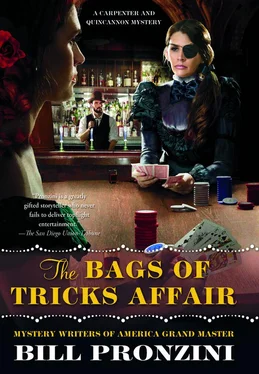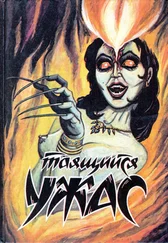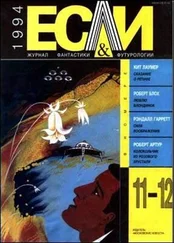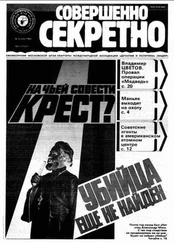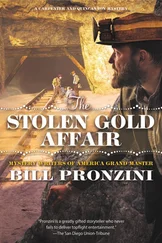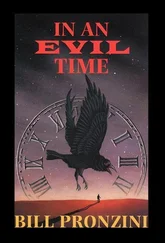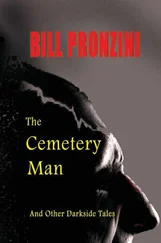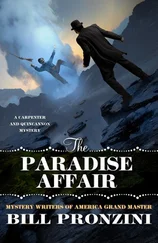They all looked at the shell casing displayed in the upturned palm of his hand.
“Couldn’t have come from Mr. Goodland’s gun,” Boxhardt said. “Revolvers don’t eject spent shells. Only one bullet was fired from that Colt’s, and the empty was in the cylinder.”
Kasabian asked, “Then where did that one come from?”
“The fire inside the boiler,” Quincannon said, “where Rollins placed it after he clubbed Mr. Goodland, shot Saxe, and put the revolver in Mr. Goodland’s hand. A blank cartridge. The heat exploded the powder, simulating a gunshot, and the explosion kicked the casing out through the open fire door. Rollins had used the trick before — I’ll explain where and how shortly — and so he was able to gauge within a minute or so when it would go off.”
“So that’s what happened, and with me as the goat.” Goodland glared sideways at Rollins, reached a hand through into the other’s cell. “By Christ, if these bars weren’t between us—”
Rollins quickly backed away.
“The shot that actually killed Saxe,” Boxhardt said. “How was that done?”
“Fired when Cora Lee launched the rocket when she saw Mr. Goodland arrive promptly at seven. The boom of the mortar drowned the sound of the report. Timing, you see?”
“But what about the locked door?”
“It wasn’t locked. Rollins created the illusion that it was locked by gripping the knob and rattling it while he blocked the doorway with his body. The bolt wasn’t damaged, a fact that was overlooked in the excitement.”
“By everyone except you.”
“The eyes of a trained detective,” Quincannon said.
Rollins had to know he was caught, but in desperation he played his last card. “Leonide was still alive when we were all outside. You know he was, you heard him beg for his life — you and the others heard him!”
“No,” Quincannon said, “we didn’t.”
Once again he paused dramatically and then asked the banker, “Mr. Kasabian, do you remember my telling you that Saxe and Rollins were once variety performers in Chicago?”
“Yes. Low comedy and specialty acts, you said.”
“I didn’t know for certain what the specialty acts were until a short while ago, when I received a wire from the Chicago office of the Pinkerton agency. One act the pair performed was a magic show in which a pistol was supposedly fired on command. Saxe was the magician, Rollins the one who invented and staged the trick. Rollins was also a performer with his own specialty. One he performed quite well, by all accounts.”
“What specialty, for heaven’s sake?”
Quincannon said, “Ventriloquism.”
Sheriff Beadle and his deputies finally rattled into Delford aboard a prison wagon, anticlimactically, a few minutes shy of noon. By this time, even though Rollins once more lapsed into churlish silence, Cora Lee Johnson had admitted her part in the murder scheme. She claimed the entire plan had been Rollins’ and that he had coerced her into going along with it — a falsehood, to be sure, but one she had already begun to play well with lamentations and tears of bogus remorse. She was a comely woman; Quincannon had little doubt that she would be able to convince a male jury to be lenient.
Ordinarily he would have basked in the approbation heaped upon him by his client, the marshal, the mayor, O. H. Goodland, and Sheriff A. Beadle, but now that the case had been resolved, Sabina’s welfare was uppermost in his mind and he was anxious to return to San Francisco. Even though he’d missed the daily passenger train, another night in Delford would have been intolerable. With the assistance of Parnell and Boxhardt, he arranged with the station agent for the special privilege of departing on the next train through Delford, a slow freight leaving at three o’clock. According to the Southern Pacific timetable, the freight would put him in Stockton in time to catch the evening passenger train westbound from Sacramento. If the latter were on schedule, he would arrive back in the city at eight-thirty.
The one thing he made sure to do before departing Delford was to collect the balance of his fee from Aram Kasabian. The banker insisted on paying him in cash rather than by check, which was fine with Quincannon. There was nothing so comforting as the feel of crisp new greenbacks. Nothing, that was, except for the feel of Sabina in his arms.
Frustration dogged him on the return trip. The slow freight ran nearly half an hour late leaving Delford, and the delay might well have caused him to miss the westbound passenger train except that it, too, was running late — more than an hour late by the time it reached Stockton. And for one reason or another, the blasted rattler was yet another twenty-five minutes behind schedule when it chuffed into the Third and Townsend depot. A pox on Southern Pacific! He would write them a letter of complaint, not that it was likely to have any positive effect.
His Hampden stem-winder gave the time as 10:15 when he climbed into one of the waiting cabs. Too late to go calling on Sabina tonight. He’d struggled with the decision, but as much as he wanted to satisfy himself that all was well with her, it would take half an hour to reach her flat and she might be in bed asleep by the time he got there. She would not take kindly to receiving him at such a late hour, particularly in his tired, rumpled, sweat-dampened, and rather malodorous condition. The slow freight had been loaded with cattle, and the caboose, in which he’d ridden with the brakeman, anything but spotlessly maintained.
He gave the driver his home address on Leavenworth.
As tired as he was, he slept a full eight hours. After coffee and a light breakfast, he rode a trolley to Russian Hill. Sabina didn’t answer her bell. Well, that was nothing to be concerned about. She might have gone to church, or to visit Callie French, or resumed her Sunday bicycle outings with Amity Wellman in Golden Gate Park.
Another trolley took him downtown to Market Street. When he entered the agency, he found a scatter of mail on the floor under the door slot — Saturday’s delivery. It would not have been there if Sabina had come into the office yesterday. Not that it was unusual that she hadn’t; only the press of business brought her in on Saturdays. A brief, undated note on his desk blotter, anticipating his return with the statement that she was closing up half an hour early in order to attend a Voting Rights for Women supper, must have been written late Friday afternoon.
No cause for alarm in any of that, but there was cause, by God, in three other items he discovered.
The first was among the mail, a hand-delivered envelope addressed to Sabina. Under the letterhead of James Pollard, Great Western Insurance’s chief claims adjuster, and bearing yesterday’s date, were a dozen lines taking her to task for failing to keep their ten o’clock appointment. He had attempted to telephone her and then waited in his office until noon, he wrote, and unless she presented him with an acceptable excuse first thing Monday morning, he would give the injury claim to another investigative agency.
Sabina was punctual to a fault. And Quincannon had never known her not to give notification if circumstances prevented her from keeping an appointment with a client, especially a regular one such as Pollard.
He hardly ever snooped in her desk, but Pollard’s missive drove him to it. That was where he found the two wires, in a bottom drawer beneath a report of a two-day investigation she had successfully conducted while he was away. The first wire, from Pinkerton’s New Orleans office detailing the suspected crimes of Jeffrey Gaunt and Lady One-Eye, was disturbing enough. The date on it indicated it had been delivered before his departure for Delford. Why hadn’t she shown it to him? To spare him what she felt was undue concern?
Читать дальше
